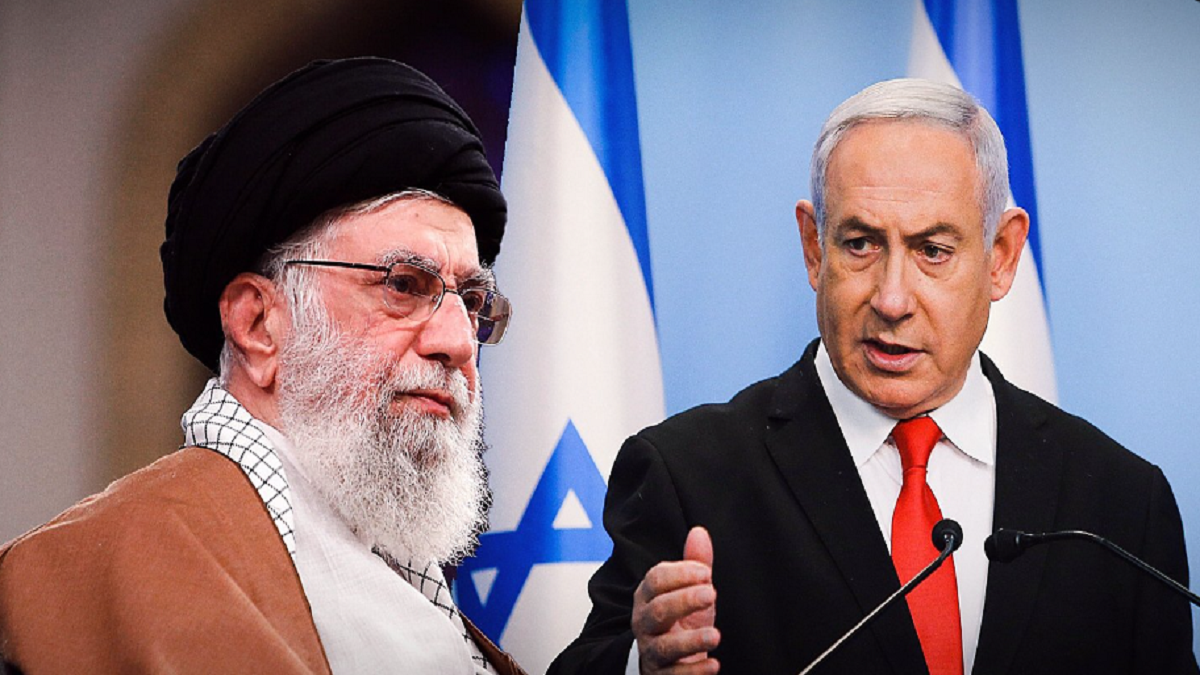The volatile Middle East is once again at the epicenter of global attention on upcoming Iran Israel war as tensions reach alarming heights. The ongoing conflict, characterized by threats, attacks, and geopolitical maneuverings, has the world on edge. This article delves into the intricate web of events leading up to the current situation, exploring the implications for regional stability and global security.
Table of Contents
Why is it that Iran's inevitable 𝙍𝙀𝙏𝘼𝙇𝙄𝘼𝙏𝙊𝙍𝙔 Attack on Israel is being frowned upon and promoted as an opener to a nuclear war but Israel's 75 years of theft and murder the latest of which is a #GenocideByIsrael taking the lives of more than 37K civilians in #Gaza half… pic.twitter.com/XeLk99OcNm
— Marwa Osman || مروة عثمان (@Marwa__Osman) April 13, 2024
The Biden Administration’s Stance on Iran Israel War
US President Joe Biden recently issued a stern warning to Iran, emphasizing America’s unwavering support for Israel. Biden’s message was clear: any attack on Israel would be met with a strong response from the United States. The President’s statement came amidst growing concerns that Iran was planning an imminent attack on Israel.
The Alleged Provocation: Attack on Iran’s Embassy in Damascus
IS IRAN RETALIATING AGAINST ISRAEL'S AIRSTRIKES ON ITS EMBASSY IN SYRIA?
— Warfare Analysis (@warfareanalysis) April 13, 2024
There are political, economical and military dynamics at play. Iran aims to avoid a full-scale war until it secures nuclear capabilities, Israel seeks a comprehensive conflict with Iran, driven by strategic… pic.twitter.com/xdiYwMDwrN
The recent escalation can be traced back to an alleged Israeli attack on Iran’s embassy in Damascus. The attack resulted in the death of seven elite Iranian military officers, including two generals. Iran has vowed to avenge the deaths, further fueling tensions in the region.
International Reactions and Travel Advisories
Countries around the world are closely monitoring the situation, with several issuing travel advisories for their citizens. India, France, Poland, and Russia have all warned against traveling to Iran and Israel due to the escalating tensions. The German foreign office even highlighted the risk of arbitrary arrests and interrogations for its citizens in the region.
Hezbollah’s Role in the Conflict
The Iran-backed Lebanese militia, Hezbollah, has also entered the fray by firing missiles towards northern Israel. While Israel’s defense systems intercepted the projectiles, the incident underscores the potential for the conflict to spill over into neighboring countries.
Military Preparedness and Defense
Both Iran and Israel have been bolstering their military capabilities in anticipation of further hostilities. Iran is believed to have moved military assets, including drones and cruise missiles, signaling its readiness for an attack. Meanwhile, Israel’s defense forces remain on high alert, prepared to respond to any threats.
The Role of Proxies and Proxy Warfare
While direct confrontation between Iran and Israel remains a significant concern, there are also fears that Iranian proxies could be involved in attacks on Israel. This proxy warfare adds another layer of complexity to the conflict, making it even more challenging to predict and manage.
The US Military Presence and Regional Deterrence
US is Sending in Warships to Defend Israel…. because there are reports Iran “Could attack” within the next 2 Days
— MJTruthUltra (@MJTruthUltra) April 13, 2024
Who threatens war two days ahead?
Today is April 12.
Iran next. April 14.
April Showers.
Kinda weird how it lines up.
Just to be clear… there are a few… pic.twitter.com/b4QTQZAxPz
The US has deployed additional assets to the Middle East, bolstering regional deterrence efforts and increasing force protection for its troops. US Navy forces in the Red Sea have intercepted long-range missiles aimed at Israel in the past, highlighting the level of cooperation between the US and Israel.
Iran’s Missile Arsenal: Capabilities and Threats
Iran’s missile capabilities are a cause for concern, with the country possessing missiles capable of reaching Israel. From the Sejjil with a range of 2,000-2,500 km to the Emad, Iran’s missile arsenal poses a significant threat to regional stability.
Diplomatic Efforts and International Pressure
Despite the escalating tensions, diplomatic efforts are underway to de-escalate the situation. Secretary of State Antony Blinken has been in contact with foreign ministers from Turkey, China, and Saudi Arabia, urging them to press Iran not to escalate the conflict. Meanwhile, France has issued warnings against traveling to the region, reflecting the international community’s concern over the situation.
The Humanitarian Impact and Global Concerns
Beyond the geopolitical implications, the conflict has a profound humanitarian impact, with thousands of Indians and other expatriates residing in Iran and Israel. Efforts are underway to ensure the safety and well-being of these individuals, with contingency plans for possible evacuations.
Conclusion
The Iran-Israel war has the potential to destabilize the entire Middle East, with far-reaching implications for global security. As tensions continue to escalate, the international community must remain vigilant and actively engage in diplomatic efforts to prevent further hostilities. While the situation remains fluid and unpredictable, one thing is clear: the stakes are high, and the world is watching closely. Stay tuned for latest updates.
